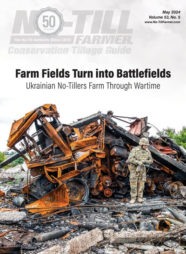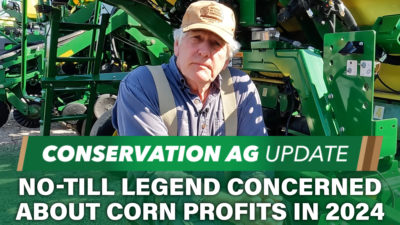Advertise Follow Us
No-Till Farming 101
Heavy Clay Soils No Match For Well-Tuned No-Till System
Ontario no-tiller Eric Kaiser shares his system for no-tilling tough soils that are prone to poor water infiltration and compaction
Read More
What I've Learned from No-Tilling
No-Till And Cover Crops — Just Rolling With It
A three-pronged management approach helps longtime no-tiller John C. Johnson use residue to keep nutrients cycling and yields high.
Read More
An 'Honest No-Till Education' Yields Serious No-Till Learning
Weed biology, cloud data systems, nutrient cycling, biological pest control and much more were discussed at the 22nd annual National No-Tillage Conference in Springfield, Ill.
Read More










